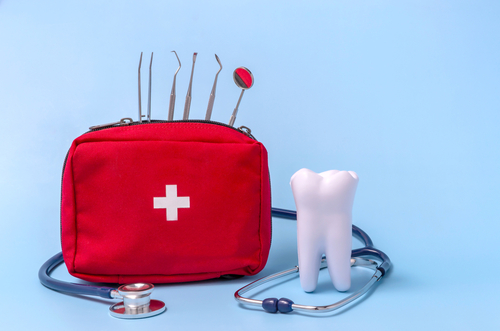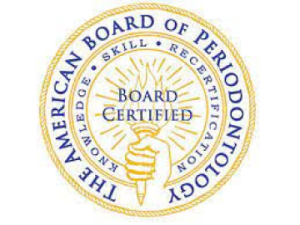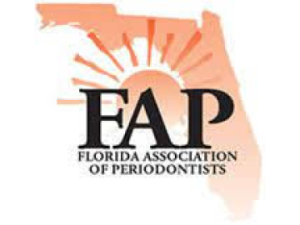Taking care of your gums is essential for good oral health. Brushing regularly, flossing, and visiting the dentist can help a lot. But sometimes, urgent gum problems come up and require quick help.
It is important to know the warning signs. If you see these signs, seek help from an emergency periodontist. This can prevent more problems and restore your gums to health.
Identifying Signs of Severe Gum Infections
Severe gum infections can quickly become serious problems for your oral health if you do not treat them. One sign to watch for is bad breath that doesn’t go away, even after brushing or using mouthwash. This may show that bacteria are growing too much, which can cause an infection of the tissues.
Another warning sign is when your gums are tender and bleed easily, even with gentle brushing or flossing. This could mean you have inflammation and a possible infection.
Recognizing Advanced Periodontitis Symptoms
Periodontitis is a serious gum infection. You may see loose teeth or feel changes in your bite as it worsens. This stage of gum disease needs urgent help from a periodontist. If not treated, it can lead to bone and tooth loss.
Early detection and treatment are vital to managing periodontal disease. If you think you have these symptoms, do not wait. Consult a periodontist for advice.
Traumatic Injuries to the Gums: Immediate Actions
Gum injuries, such as cuts, tears, or tissue loss, require quick and proper action. Simple first aid can stop bleeding and reduce the chance of infection. Still, it is important to get immediate dental care from an emergency periodontist.
First Aid for Gum Injuries in West Palm Beach, Florida
Experiencing a gum injury can be scary. However, taking fast action is important for your oral health. Here are some first-aid steps you can take:
- Control Bleeding: Put gentle pressure on the injured area with a clean cloth or gauze.
- Rinse Your Mouth: Use salt water to clean the area and help stop infection.
- Cold Compress: Place a cold compress on the outside of your cheek, near the injury, to reduce swelling.
These steps are immediate and should be followed by professional treatment from an emergency periodontist. They will check the damage to the soft tissue and bone, provide the necessary treatments, and give you advice on proper care while you heal.
When to Call an Emergency Periodontist
Regarding your oral health, it’s always best to err on the side of caution. If you experience any of the following, don’t hesitate to call an emergency periodontist:
- Uncontrollable bleeding
- Severe pain and swelling
- Loose or dislodged teeth
- Signs of an infection, such as pus or a fever
- Traumatic injuries to your gums
Early intervention is crucial in preventing further complications and ensuring the best possible outcome.
Pre-Emergency Guidance: Managing Symptoms at Home
While you wait for your appointment with an emergency periodontist, you can try some things to ease the pain and prevent damage. These home remedies can help relieve pain and keep your mouth clean, but they are not a replacement for real dental care.
Temporary Pain Relief Techniques
Gum pain is unpleasant, but there are ways to ease discomfort before seeing a dentist. Rinse with warm salt water to reduce inflammation and aid healing. Over-the-counter pain meds like ibuprofen can help temporarily. Use a cold compress on the affected area to numb pain and reduce swelling.
Preventing Further Damage Before Your Appointment
To protect your gums before seeing your periodontist, maintain proper oral hygiene using a soft-bristled toothbrush. Stick to a soft diet and avoid hard, crunchy, or spicy foods. Refrain from smoking or using tobacco products to promote healing and prevent worsening gum issues.
The Emergency Periodontal Appointment: What to Expect
At your emergency appointment, the periodontist will carefully assess your oral health, symptoms, medical history, and past dental treatments. After diagnosing the issue, they will discuss the best treatment options with you.
Assessment and Immediate Care Procedures
When you come in for your emergency appointment, the periodontist will start by examining your gums and teeth more closely. They will use special tools to gently check your gums. This will help them understand how deep any pockets are and if there are signs of gum disease. They may take X-rays to see how much bone is supporting your teeth.
Depending on how serious your situation is, the periodontist might suggest immediate treatments. This could include a professional cleaning by a dental hygienist to clear plaque and tartar from below the gum line. They might also give you antibiotics to help with any infection and help healing.
Follow-Up Care and Recovery Plan
After you get immediate help for your gum issues, the periodontist will create a special recovery plan to help you heal and prevent future health problems. This plan usually includes follow-up appointments to check your progress and see how well the treatment is working.
During these follow-up visits, the periodontist might clean your gums again, change your medications, or suggest more treatments if needed. It’s essential to follow their advice and maintain good oral hygiene while recovering.
Long-Term Oral Health: Preventing Gum Emergencies
Good oral hygiene is the key to preventing gum problems. Establishing a healthy routine can stop issues before they start.
Routine Care Practices for Gum Health
Keeping your gums healthy takes time and effort. It is not something to think about when a problem appears. Regular care helps prevent gum disease and other dental issues. Make sure to brush your teeth for two minutes twice a day. Use a soft-bristled toothbrush and fluoride toothpaste to clean well.
Daily flossing is also imperative. It removes food and plaque from between your teeth, where a toothbrush can’t reach. If you find it hard to use traditional floss, try different options like interdental brushes or water flossers.
Remember to go to the dentist for check-ups and cleanings at least every six months. During these visits, your dentist or hygienist will remove hardened plaque and tartar. They will also check your gums for signs of disease and answer any questions you have.
Lifestyle Changes to Support Periodontal Well-being
Your lifestyle significantly impacts your gum health. Smoking increases the risk of gum disease by weakening the body’s ability to fight infections and heal. Quitting smoking is crucial for gum and overall health. Eating a balanced diet rich in fruits and vegetables supports gum health while reducing sugary drinks and processed foods helps prevent plaque buildup. Managing stress is essential as it can weaken the immune system, making you more susceptible to infections like gum disease. Incorporate stress-relieving activities such as exercise, meditation, or spending time outdoors.
We’re Here to Help
If you’re experiencing symptoms of severe periodontitis or a traumatic gum injury, schedule an appointment with Palm Beach Periodontics today. Your health is too important to wait.












